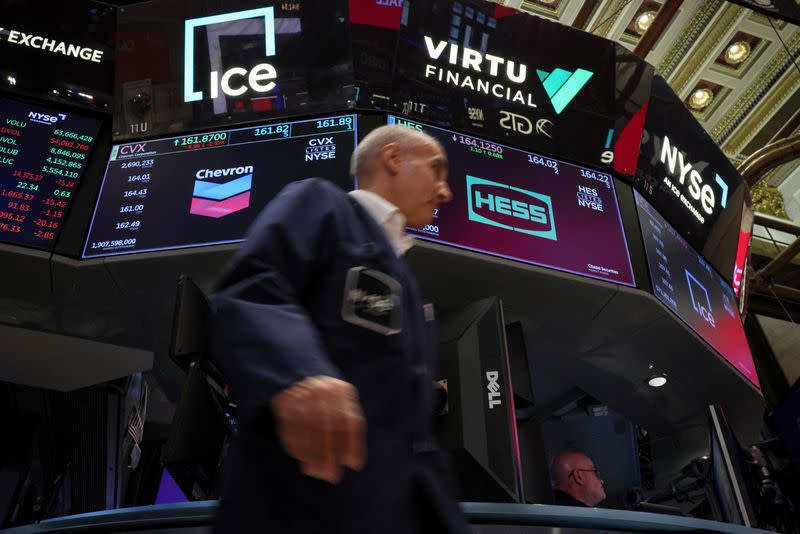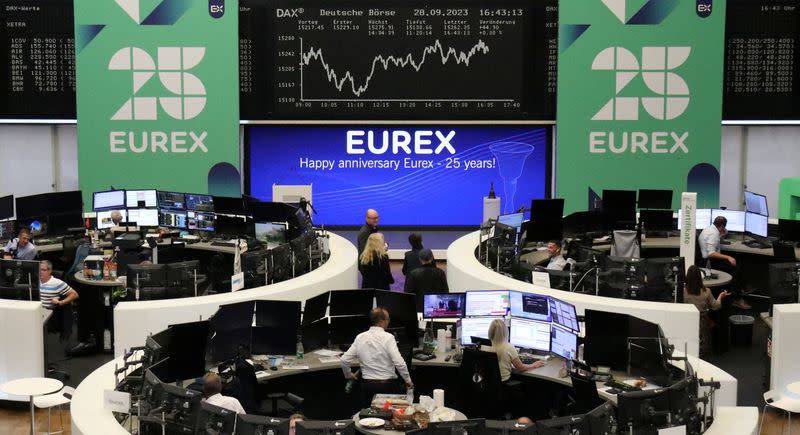In This Article:
By Lawrence Delevingne
(Reuters) -Stocks slipped on Wednesday after the latest round of earnings prompted concern among investors over the economic outlook, adding to the angst over painfully high interest rates, while benchmark U.S. Treasury yields and the dollar ticked up.
Shares of Alphabet Inc plunged nearly 10% after the Google parent reported disappointing cloud services revenue, reviving fears of an economic slowdown and dragging down the broader communication services sector.
The Dow Jones Industrial Average finished down 0.32%, the S&P 500 lost 1.43% and the Nasdaq Composite dropped 2.43%.
"The market is focused on the mega tech names to underpin a viable rally, and yesterday's disappointment with Alphabet's earnings report is viewed as a potential harbinger of perhaps more disappointment," Quincy Krosby, chief global strategist for LPL Financial in Charlotte, said in an email.
In Europe, the STOXX 600 was little changed, after coming under pressure from a near-60% slump in shares of Worldline after the French payments company cut its financial targets. In a heavy day for bank earnings, Deutsche Bank was an outlier, with a 8% rise in its shares.
Overnight, Asian stocks rose from 11-month lows as investors cheered China's approval of a 1 trillion yuan ($137 billion) sovereign bond issue as a harbinger of stimulus, although MSCI's broadest index of Asia-Pacific shares outside Japan were little changed.
The MSCI All-World index fell 1%, heading for a third straight monthly decline in October, with a loss of 2.95%, largely as a function of the surge in U.S. Treasury yields.
HIGH RATES, MIXED DATA
U.S. Treasuries held onto a bounce-back after the 10-year yield breached 5% on Monday. The 10-year note last yielded 4.949%, up 10.6 basis points.
The interest rate on the most popular U.S. home loan last week jumped to the highest since September 2000 - 7.9% - driving mortgage applications to a 28-year low, a survey showed on Wednesday.
Separately, fresh data on U.S. business output showed higher levels in October, as the manufacturing sector pulled out of a five-month contraction on a pickup in new orders, and services activity accelerated modestly amid signs of easing inflationary pressures.
Strategists at Citi said the Purchasing Managers Index data was "yet another sign that a recession is not imminent."
"We continue to think the US economy will enter recession next year, but in the meantime, risks are balanced toward further Fed hikes, rather than cuts," they wrote in a note Wednesday.


